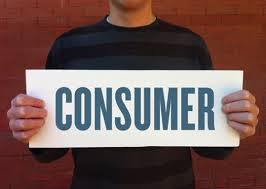Some headlines from my morning news feed:
- “Coca-Cola is removing a chemical linked with fire retardants from all its drinks by the end of the year”
- “Dunkin’ Donuts to remove titanium dioxide from donuts”
Yesterday I wrote about Ringling Brothers agreeing to eliminate elephants from its show. Truthfully, every day, I read encouraging stories about changes that improve our food quality, reduce pollution, and stop waste. I read about kinder treatment of animals and new developments in energy technologies.
Not long ago my heart was heavy about all the negative headlines. I despaired about the gridlock in Washington. I felt anger towards greedy financial institutions that weakened our economy and the corporate ownership of our politicians. I observed culture wars, fueled by a shabby media that went after every little tidbit that might become a national scandal. I wondered: what happened to the ethics that made us a great country? What can the average person do to make changes?
Now, so much encouraging news. Why? How? What is happening? Where is the shift coming from? Certainly not from our politicians. Large food companies like Coca-Cola have not become concerned about our health. The circus did not develop a sudden desire to treat animals ethically. What then? Market pressure by ordinary people made the difference. Consider these facts about our food buying habits:
- Eighty one percent of U.S. families now choose organic food at least sometimes.
- Sales of organic products in the United States jumped to $35.1 billion in 2013, up 11.5% from the previous year’s $31.5 billion and the fastest growth rate in five years.
- The fruit and vegetable category continues to lead the sector with $11.6 billion in sales, up 15% from 2012.
- The relatively small organic condiments category posted the strongest growth, at 17%, to reach sales of $830 million

And consider these facts about Dunkin Donuts and Coca Cola
- Dunkin Donuts has opened two full-service, dine-in restaurants and plans to open many more. They want develop a healthier image.
- Coca Cola earnings just dropped 55%
 Good old supply and demand at work, where consumers can make a difference by leveraging market power. We can vote with our checkbook and debit cards. As profits decrease in the less healthy market segments, they MUST respond to consumer desires. Proctor and Gamble said it this way:
Good old supply and demand at work, where consumers can make a difference by leveraging market power. We can vote with our checkbook and debit cards. As profits decrease in the less healthy market segments, they MUST respond to consumer desires. Proctor and Gamble said it this way:
“A material change in consumer demand for our products could have a significant impact on our business. We are a consumer products company and rely on continued global demand for our brands and products. To achieve business goals, we must develop and sell products that appeal to consumers. This is dependent on a number of factors including our ability to develop effective sales, advertising and marketing programs in an increasingly fragmented media environment. We expect to achieve our financial targets, in part, by shifting our portfolio towards faster growing, higher margin businesses. If demand and growth rates fall substantially below expected levels or our market share declines significantly in these businesses, our results could be negatively impacted. This could occur due to unforeseen negative economic or political events or to changes in consumer trends and habits. In addition, our continued success is dependent on leading-edge innovation, with respect to both products and operations. This means we must be able to obtain patents that lead to the development of products that appeal to our consumers across the world.”
I like it: American people are removing their blinders, taking responsibility and demanding changes using the only effective weapon left in a market-driven economy: purchasing power. I will be doing my best to buy from those companies who listen and respond (as will investors).


